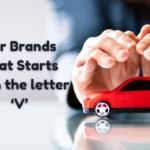Buying a used car from abroad can seem like a smart way to save money or get access to rare models unavailable in your local market. However, the global auto trade is also a prime target for fraudsters who exploit gaps in buyer knowledge, manipulate documents, and cover up vehicle history. In such cases, trusting appearances alone can lead to significant financial loss.

To avoid these pitfalls, prospective buyers should always verify the Vehicle Identification Number (VIN) and rely on professional tools such as BidFax info. This service helps uncover accident records, ownership records, and other hidden red flags that may not appear in public listings. In this article, we’ll reveal the most common scams related to car sales and how to detect them using a VIN-based approach.
Why the VIN Code Is the Key to a Safe Purchase
The VIN is a 17-character code that uniquely identifies a vehicle. Embedded within this number is a wealth of information stored across global public databases, including previous owners, past accidents, insurance claims, service entries, and even the country of origin.
A thorough VIN check offers far more than just a formality-it’s a window into the records that determine a vehicle’s true condition and legal status. By using tools like BidFax info, buyers can see the full VIN history, compare it with the seller’s claims, and make a confident, well-informed decision.
Scheme №1: The Car Looks “Clean” in Photos, but Has Been in an Accident According to the History
One of the oldest tricks in the book is selling a previously damaged vehicle that has been cosmetically repaired to look brand new. Sellers may post high-quality images showing perfect paint, undamaged panels, and pristine interiors. In reality, the vehicle might have suffered a serious collision that compromised its structural integrity.
How to recognize it:
- Always request a vehicle history report based on the VIN.
- Look for accident records, insurance payouts, and structural repair documentation.
- Be wary if the seller avoids providing documentation or claims it’s “not necessary.”
- Use professional platforms like BidFax info that cross-reference damage reports across public databases and insurance companies.
Such vehicles may appear fine for now, but hidden damages can affect safety systems, increase maintenance costs, and lower resale value.
Scheme №2: Rolled Back Mileage – Almost Unnoticeable, but Very Expensive
Mileage fraud is one of the most widespread scams in the used vehicle market. Dishonest sellers roll back odometers to make a car seem less used, increasing its value and tricking the buyer into overpaying.
How to recognize it:
- Use the VIN to check service records that include odometer readings at different points in time.
- If the latest reading is lower than older records, mileage tampering is likely.
- Look for wear-and-tear on pedals, seats, or steering wheels that doesn’t match the displayed mileage.
- Always ask for maintenance logs and compare them with the VIN history.
Even a 20,000-mile discrepancy can drastically change the value and required repairs of a vehicle. Replacing key components due to higher real mileage can be costly.
Scheme №3: Fake VIN or Number from Another Car
Another common fraud involves swapping VIN plates or presenting a fake VIN that doesn’t match the vehicle being sold. This allows criminals to sell stolen vehicles, cars with poor histories, or even cars that don’t exist at all.
How to recognize it:
- Compare the VIN on the dashboard, engine bay, and door sticker. If they don’t match, walk away.
- Use tools like BidFax info to decode the VIN and ensure it matches the vehicle’s make, model, year, and specifications.
- Be cautious of blurry VIN images in online listings or missing VIN details.
- Avoid sellers who refuse to let you run a VIN check or delay sending the number.
Using a fake VIN may seem like a minor issue, but it can lead to registration denial, legal troubles, or the car being confiscated.
Scheme №4: The Car Is Pledged, Arrested, or with a Ban on Registration
In some regions, a car can be legally used by the seller but cannot be legally sold or re-registered due to financial encumbrances, ongoing litigation, or unpaid taxes. These issues often don’t appear in listings but can block the buyer from ever putting the vehicle on the road.
How to recognize it:
- Check the VIN for ownership records and title status.
- Look for liens, court restrictions, and open loans linked to the car.
- Use a professional VIN-checking service that accesses international registries.
- Avoid rushing the process. Fraudsters often push buyers to make quick decisions, especially if the price is low.
Such restrictions can delay the registration process for months or render the purchase invalid altogether. In some cases, the vehicle may be repossessed from the new owner.
Scheme №5: “Car from Europe,” But in Fact – an American Drowned Car
Many dishonest resellers try to pass off vehicles from flooded regions (such as hurricane-prone U.S. states) as clean imports from Europe. These cars are often sold at salvage auctions and later cosmetically repaired and rebranded.
How to recognize it:
- Run a VIN history check to determine the car’s country of origin and whether it was listed in flood-affected zones.
- Look for records of water damage or salvage titles.
- Inspect interior components for water stains, corrosion, or mildew odor.
- Beware of “too good to be true” prices on high-end models.
Flood-damaged cars can have lasting electrical issues, rusting, and safety system failures-problems that might not be immediately obvious.
What to Do If You Suspect Fraud?
If something feels off, trust your instincts. Here’s what you should do:
- Pause the purchase process immediately.
- Request a full VIN report from a trusted platform like BidFax info.
- Consult with a lawyer or professional mechanic for verification.
- Avoid transferring money or signing documents until the issue is resolved.
- If you’ve already purchased the vehicle, contact your local authorities and report the fraud with all supporting evidence.
Acting quickly can help recover losses and prevent further complications.
VIN Check Is Not a Formality, but the Protection of Your Money
Many buyers view VIN checks as optional, assuming the vehicle looks good and drives well. But this mindset exposes you to fraud, hidden damages, and legal issues. In reality, VIN verification is a cost-effective, accessible tool for defending your investment.
Customer benefits of a thorough VIN check include:
- Confirmation of ownership records.
- Insight into past accidents and major repairs.
- Assurance of accurate service records.
- Verification of legal eligibility for sale and registration.
- Clarity regarding true resale value.
Services like BidFax info provide a step-by-step guide to evaluating each record, offering multilingual support and access to global databases. With just a few clicks, you can make the invisible visible and uncover hidden truths before it’s too late.
Conclusion
In today’s international car market, fraudulent schemes have become more sophisticated than ever. From forged VIN numbers to flooded cars disguised as premium imports, the risks are real-but avoidable. Armed with knowledge, skepticism, and reliable tools like BidFax info, you can navigate the used car landscape safely and confidently.
Always remember: the car may look perfect, the deal may sound amazing, but only the vehicle history tells the real story. Don’t rely on luck-rely on verified records, transparent communication, and professional tools to ensure that your next purchase is a success, not a costly mistake.








